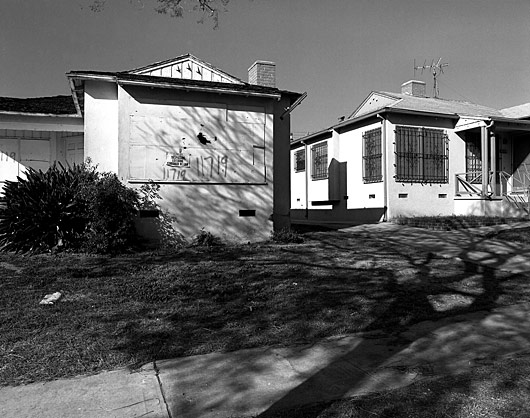
Speakers at an Equal Voice for Southern California Families budget rally in front of City Hall on January 10th. Photo courtesy of SCOPE
Jerry Brown Wants To Save For a Rainy Day? Well, It’s Here.
In some ways, Gov. Jerry Brown’s budget for the new fiscal year sounds … well, sound. After all, who can argue with tenets such as “paying down debt” and “saving for a rainy day”? Especially when his administration has projected increases in the federal GDP by three percent, and a statewide drop in unemployment by at least four percentage points.
But for many Californians, that rainy day arrived a long time ago, in the form of a financial drought: Working folks across the state have faced a difficult economic environment since the start of the Great Recession in 2007, while living paycheck to paycheck and with no road out of poverty in sight. And as for debt, more than $15 billion has been cut from the state social safety net in the past five years. When will those funds be returned to the public in the form of vital services necessary to keep families healthy and safe?
Not in the next year, according to a report released earlier this month by the California Budget Project, a non-profit think-tank with focus on reforming fiscal policy. “While the Governor’s proposed budget calls for some significant improvements in a number of areas, it represents only a modest step toward reinvestment in public services that are critical to individuals, families, and communities.” Those slashed services affect our residents’ access to affordable childcare and healthcare, key welfare-to-work programs, and in-home nursing assistance—fundamental programs that keep costs down and create viable opportunities for those most in need to help themselves.
The cornerstone of the 2014-15 budget lies in the projected extra $6.3 billion in “General Fund” revenue, primarily due to tax funds generated last year after the passage of Propositions 30 and 39 in 2012. The proposal calls for those funds to be put toward paying off the interest on federal loans used to cover expenses such as unemployment insurance, and the expansion of Proposition 58—a rainy day fund that currently has no limitations on when, and for what purposes, the money can be used.
But the root causes of unemployment are often a lack of adequate childcare, job assistance and training programs, and healthcare benefits that allow people to successfully find, and maintain, good jobs in the long run. Most troublesome about the new budget are:
No restoration of childcare services that offered low-income families safe and affordable care for three- and four-year-olds. Since 2007, funding for these programs have been cut by 40 percent, resulting in the loss of over 100,000 spots in remaining preschools.
No additional funding for California Work Opportunity and Responsibility to Kids (CalWORKs) beyond the five percent increase proposed in the last fiscal year. The program helps parents in need find jobs as well as job training, and provides cash assistance during the job search. CalWORKs has been whittled down in recent years, with severe cuts to the financial aid.
Cuts to In-Home Supportive Services (IHSS) that keeps disabled and elderly residents in good health at home without having to rely on external facilities that are costly for both patients and the state. The new budget cuts the number of hours individual program beneficiaries may receive by eight percent, and prohibits IHSS providers from working overtime.
While the budget includes an expansion of Medi-CAL in order to accommodate the new federal requirements under the Affordable Care Act, the proposal also reduces the amount of reimbursements physicians and other care providers can receive for accepting Medi-CAL patients, thereby discouraging them for participating in the program.
There are modest investments outlined in the proposal, such as the controversial high-speed rail and other projects that would reduce greenhouse gas emissions, and CWAP, a clean water initiative. But without an aggressive focus on rebuilding the safety net, the statewide economy will not improve—and families who have lost the most in the past five years will never be able to heal and recover.
To learn more about the new budget, please visit the California Budget Project at http://www.cbp.org. To learn more about Equal Voice for Southern California Families, please visit http://www.equalvoicesocal.org.












